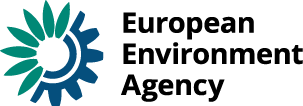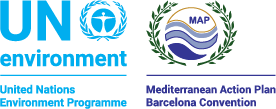Assessing H2020/NAP Industrial emission cluster, 19-20 March 2019, Tirana, Albania
On 19-20 March 2019, Mediterranean experts on Industrial emissions and PRTR met in Tirana, Albania to share lessons learned from on-going process of NBB/PRTR reporting. To refine methodology for developing and applying national emissions factors, assess progress with development of H2020/NAP indicators and production of related thematic assessment for industrial emissions cluster, ensure synergies between 4th NBB cycle and H2020/NAP industrial emissions data flows.
The workshop was organised by UN Environment/Mediterranean Action Plan (MAP) and the EU funded project European Neighbourhood Instrument (ENI) Shared Environmental Information System (SEIS) II South Support Mechanism (ENI SEIS II South Support Mechanism). Gathering experts from five ENI South countries (Egypt, Israel, Lebanon, Morocco and Tunisia), alongside representatives from 9 other Contracting Parties to the Barcelona Convention, the European Environment Agency (EEA), the United Nations Economic Commission for Europe (UNECE) and the Environmental Centre for Administration and Technology in Tirana (ECAT Tirana).
The workshop provided detailed information on tools for data collection for use in the 4th Cycle of NBB update and H2020/NAP Indicator on industrial emissions cluster, in particular via the NBB/PRTR Info system and the Spatial Data Infrastructure - InfoMAPNode.
Legal elements for PRTR implementation were reviewed in detail, in particular the draft legal template to facilitate national regulations and the establishment of national PRTR systems prepared by the Secretariat. The draft document will be further developed to be better streamlined with Kiev PRTR Protocol and E-PRTR. The Secretariat also presented a proposal for the MED POL PRTR implementation guide and the methodology for developing national emission factors. As well as emphasizing technical support from and through the Secretariat, especially important for South Mediterranean countries where industries do not have established monitoring and reporting systems. Twelve national consultants on NBB have been recruited in this regard and several have already undertaken activities toward these goals.
EEA provided comprehensive information on development principles and main elements of the H2020 Assessment Report Outline focusing on the details and characteristics of integrated environmental assessment, including assessment across thematic chapters, issues across geographical scales and stakeholder inclusion at all stages of assessment. Experts further discussed the proposed conclusions and key messages that the H2020 Assessment aims to provide to policy makers and took note of deadlines for final data submission of relevance for H2020/NAP reporting.
More information is available here


